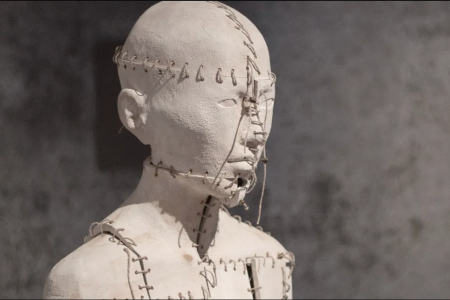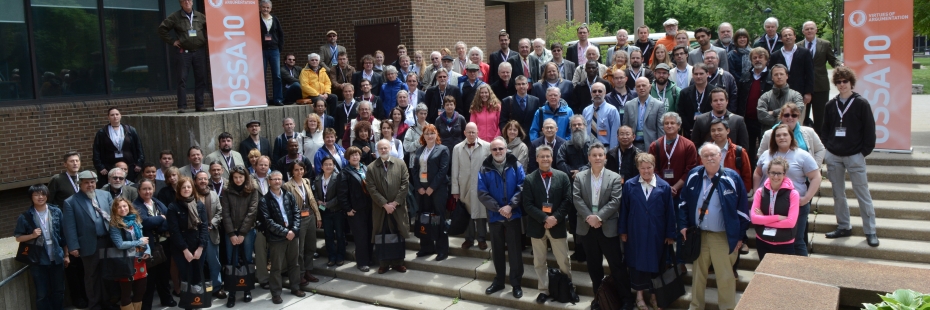
Multi-Modal Argumentation After 25 Years: A Critical Assessment
Summer Institute, University of Windsor June 8-12, 2020
Live Online: See attachment for reading list and course schedule
In conjunction with OSSA 12 (Ontario Society for the Study of Argumentation) conference at the University of Windsor, June 3-6, 2020, University of Windsor's Centre for Research in Reasoning, Argumentation and Rhetoric will offer a summer institute on multi-modal argumentation. The instructors for the course will be:
Professor Michael A. Gilbert is at York University in the department of Philosophy. He began studying philosophy in 1962 at what was then Hunter College in the Bronx, a part of the City University of New York. He studies philosophy, gender and feminist philosophy. His approach is interdisciplinary and radical insofar as it emphasizes and defends the credibility of non-logical modes of communication and argumentation. His multi-modal theory holds that information in arguments is exchanged not through statements, but through messages which include familiar meaning, context, bodily communications, power relations, and intuitions (to list but a few of the many resources ordinary people use). His published works include: Arguing with People (Broadview Press 2014), How to Win an Argument (2nd edition, Wiley 1996) and Coalescent Argumentation (Routledge 1997).
Professor David Godden is an assistant professor of philosophy at Michigan State University in East Lansing, Michigan, where he teaches epistemology, logic, early analytical, and critical raesoning. His areas of research interest include epistemology, theories of rationality, reasoning and argument, the theory of evidence, logic (formal and informal), the history and philosophy of logic, and the history of modern and analytic philosophy. Dr. Godden has published on a wide variety of topics including corroborative evidence, virtue argumentation, argumentative rationality, argumentation and extended cognition, teaching rational responsibility, deep disagreement, Mill's logic, Quine's holism, common knowledge, presumption, and argumentation schemes. His articles have appeared in journals such as Argumentation, Synthese, Logos & Episteme, History & Philosophy of Logic, Topoi, Philosophy & Rhetoric, Argumentation & Advocacy, and Informal Logic.
Professor Linda Carozza, Department of Philosophy, York University; Linda did her PhD at York University and her MA at the University of Windsor. Linda's areas of interest include Argumentation Theory, Critical Thinking, Conflict Resolution and Mediation, and Transformative Justice. She currently teaches at York University, and is the Program Director of the Conflict Resolution program at Tape Studies, affiliated with the University of Toronto, where she also teaches. Linda's current theoretical research focuses on emotional arguments and transformative justice. She is an avid restorative justice mediator and circle keeper at two not-for-profit organizations in Toronto. Linda is bridging her interests in philosophy and conflict resolution in an empirical study. Through a youth leadership program she is researching connections between critical thinking, conflict management styles, arguing styles, and moral judgments.
Professor Emeritus Claudio Duran is a Senior Scholar, Philosophy Department, York University, Canada. He also has been teaching courses at the graduate level at the Philosophy Department, Universidad de Chile since 2006 together with Professor Carlos Ruiz. He has participated in many international conferences at OSSA (Canada), ISSA (Holland) and CEAR (Chile) especially focusing on Michael Gilbert's theory of Multi-Modal Argumentation. His approach involves as well ideas from the psychoanalytic theory of Bi-Logic. From these perspectives, his work deals with topics such as argumentation in the press and more recently focusing upon "deep disagreement". Main Publications in these areas: EL MERCURIO: Ideología y Propaganda 1954-1994 (Ediciones ChileAmerica-Cesoc, Santiago, Chile, 1995), "Ecuanimidad, justicia, argumentación y el proceso psicoanalítico" (with British psycoanalyst Eric Rayner) (In Gradiva, ICHPA, number 1-2002), "The September 11, 1973 military coup in Chile and the military regime 1973-1990: A case of social and political deep disagreement" (In Scrutinizing Argumentation in Practice, Edited by Frans H. van Eemeren and Bart Garden, John Benjamins Publishing Company, 2015).
Professor Christopher W. Tindale is Director of the Centre for Research in Reasoning, Argumentation, and Rhetoric (CRRAR) and Professor of Philosophy at the University of Windsor, where he is co-editor of the journal Informal Logic and the book series Windsor Studies in Argumentation. His textbook authorship includes Good Reasoning Matters (with Groarke, Oxford University press 2008) and Fallacies and Argument Appraisal (Cambridge University Press 2007). He is the author of many papers in argumentation theory. His most recent books include Reason’s Dark Champions (University of South Carolina Press 2012), The Philosophy of Argument and Audience Reception (Cambridge University Press 2015), and a series of essays in Spanish, Retórica y teoría de la argumentación contemporáneas: ensayos escogidos de Christopher Tindale (Universidad EAFIT 2017).
The course is open to graduate students, post-doctoral researchers and junior faculty who may attend the course as fellows; and for others with a suitable background who wish to take the course out of interest. Those who complete the course will be awarded a CRRAR Certificate.
COURSE DESCRIPTION
Michael Gilbert’s “Multi-Modal Argumentation” appeared in the journal Philosophy of the Social Sciences in 1994. The account then was developed in 1997 book, Coalescent Argumentation. The ensuing twenty-five years have seen the theory discussed in some quarters while neglected in others. This Summer Institute is an opportunity to review the theory after 25 years, to discuss its details and the prospects for its development.
Summer Institute faculty include scholars who have made multi-modal argumentation a focus of their research or incorporated it into their thinking in a significant way. The Institute will open with a lecture by Michael A. Gilbert, and will include days devoted to discussions of the four modes highlighted in the theory: logical; emotional; visceral; and kisceral.
Summer Institute Course Schedule
COURSE REQUIREMENTS
Students who register for the course will have an opportunity to develop a project throughout the week based on the themes of the Institute. That project can be submitted later in the summer.
Registrants will also be supplied with instructions on how to access the live sessions. Those planning to attend the Institute should request the advanced Reading List (ctindale@uwindsor.ca). And we encourage all participants to take advantage of the OSSA Econference that will be held the week before the Institute.
Further information is pending.

